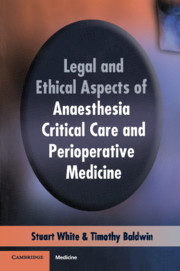Book contents
- Frontmatter
- Contents
- 1 Introduction
- 2 An introduction to the UK legal system
- 3 An introduction to medical ethics
- 4 Rights, and the Human Rights Act, 1998
- 5 Consent
- 6 Negligence
- 7 Confidentiality, and access to medical records
- 8 Abortion
- 9 Products liability
- 10 Research
- 11 Death and organ procurement
- 12 Professional regulation
- 13 Resource allocation
- Appendix: Important legal cases
- Index
4 - Rights, and the Human Rights Act, 1998
Published online by Cambridge University Press: 18 August 2009
- Frontmatter
- Contents
- 1 Introduction
- 2 An introduction to the UK legal system
- 3 An introduction to medical ethics
- 4 Rights, and the Human Rights Act, 1998
- 5 Consent
- 6 Negligence
- 7 Confidentiality, and access to medical records
- 8 Abortion
- 9 Products liability
- 10 Research
- 11 Death and organ procurement
- 12 Professional regulation
- 13 Resource allocation
- Appendix: Important legal cases
- Index
Summary
The Human Rights Act, 1998 (HRA) came into force throughout UK on October 2nd, 2000. The HRA incorporated most of the Articles of the European Convention of Human Rights (ECHR) into domestic law. Until that time, both the state and the individual were notionally allowed to act with relative freedom in pursuit of their own interests, provided those actions were in accordance with statutory provisions and common law. The HRA introduced the principle that the action of the state and public bodies had to be justified in accordance with the limitations imposed by the ECHR. Moreover, the HRA introduced the concept of positive rights into UK legislation. The legal and moral position now is such that both the human rights of the UK citizen and the responsibilities of the UK state have become legally defined.
ETHICS
Human rights are considered practicable, inalienable, moral claims attributable to any human being (by reason alone of being human) that ought to be respected and enforced by all, in order to ensure the political and civil freedoms of individuals. In theory a right is to be morally respected even if it goes against the common good (e.g. parental refusal of vaccination for a child) or is at odds with a specific duty (e.g. refusal of treatment when a doctor thinks treatment is in the patient's best interest). To interfere with the exercise of a right requires a clear demonstration that another right will be unjustifiably interfered with, when exercising the first right.
- Type
- Chapter
- Information
- Publisher: Cambridge University PressPrint publication year: 2004



